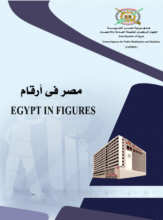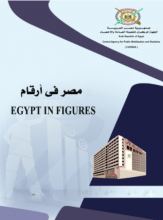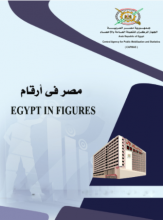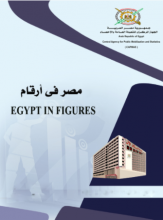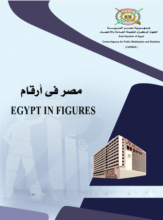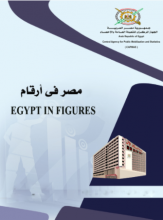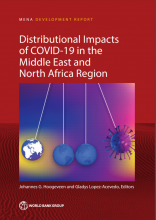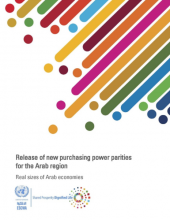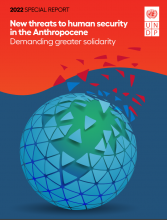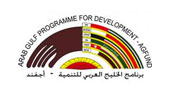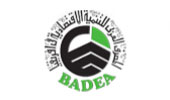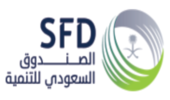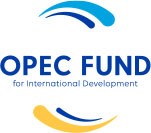-
Egypt in Figures - Population 2022
Central Agency for Public Mobilization and Statistics (CAPMAS), Egypt in Figures - Population 2022 2022"Egypt in Figures" is a booklet issued each year by the Central Agency for Public Mobilization and Statistics (CAPMAS). It contains the most important demographic, social and economic statistcs, as well as some statistical indicators about Egypt.Read More
Government publication -
Egypt in Figures - Education 2022
Central Agency for Public Mobilization and Statistics (CAPMAS), Egypt in Figures - Education 2022 2022"Egypt in Figures" is a booklet issued each year by the Central Agency for Public Mobilization and Statistics (CAPMAS). It contains the most important demographic, social and economic statistcs, as well as some statistical indicators about Egypt.Read More
Government publication -
Egypt in Figures - Economy 2022
Central Agency for Public Mobilization and Statistics (CAPMAS), Egypt in Figures - Economy 2022 2022"Egypt in Figures" is a booklet issued each year by the Central Agency for Public Mobilization and Statistics (CAPMAS). It contains the most important demographic, social and economic statistcs, as well as some statistical indicators about Egypt.Read More
Government publication -
Egypt in Figures - Labor 2022
Central Agency for Public Mobilization and Statistics (CAPMAS), Egypt in Figures - Labor 2022 2022"Egypt in Figures" is a booklet issued each year by the Central Agency for Public Mobilization and Statistics (CAPMAS). It contains the most important demographic, social and economic statistcs, as well as some statistical indicators about Egypt.Read More
Government publication -
Egypt in Figures - Environment 2022
Central Agency for Public Mobilization and Statistics (CAPMAS), Egypt in Figures - Environment 2022 2022"Egypt in Figures" is a booklet issued each year by the Central Agency for Public Mobilization and Statistics (CAPMAS). It contains the most important demographic, social and economic statistcs, as well as some statistical indicators about Egypt.Read More
Government publication -
Egypt in Figures - Health 2022
Central Agency for Public Mobilization and Statistics (CAPMAS), Egypt in Figures - Health 2022 2022"Egypt in Figures" is a booklet issued each year by the Central Agency for Public Mobilization and Statistics (CAPMAS). It contains the most important demographic, social and economic statistcs, as well as some statistical indicators about Egypt.Read More
Government publication -
Distributional Impacts of COVID-19 in the Middle East and North Africa Region
World Bank Group, Distributional Impacts of COVID-19 in the Middle East and North Africa Region 2021COVID-19 is one of multiple crises to have hit the Middle East and North Africa (MENA) region in the decade following the Arab Spring. War, oil price declines, economic slowdowns and now a pandemic are tearing at the social fabric of a region characterized by high...Read More
Report -
Purchasing power parities for the Arab region: Real sizes of Arab economies
Economic and Social Commission for Western Asia (ESCWA), Purchasing power parities for the Arab region: Real sizes of Arab economies 2022This release of new PPPs follows the release by ESCWA of the online regional report entitled “Purchasing power parities and the real size of Arab economies”, and complements the annual PPP series that starts from 2011, providing estimates extending until 2021. The...Read More
Report -
New threats to human security in the Anthropocene
United Nations Development Programme (UNDP), New threats to human security in the Anthropocene 2022When introduced in 1994, the human security approach refocused the security debate from territorial security to people’s security. This idea, which the UN General Assembly endorsed in 2012, invited security scholars and policymakers to look beyond protecting the nation...Read More
Report
-
Mind the Gap: SDGs Data Availability and Gaps in the Arab Region
-
-
The ADP COVID-19 Policy Mapper aims to facilitate access to relevant information on the policy measures adopted by Arab governments to contain the pandemic and to address its impact. By providing access to policy measures and latest data available at the economic, social, environmental and governance levels, the mapper acts as a quick one-stop-shop to help users form a preliminary contextualized analysis that takes into consideration the country’s sources of vulnerabilities and structural deficits while accounting for its pillars of resilience.
-
EGYPT HUMAN DEVELOPMENT REPORT 2021 "DEVELOPMENT, A RIGHT FOR ALL: EGYPT’S PATHWAYS AND PROSPECTS"
Check out the report -
Palestine’s country overview
The COVID-19 pandemic struck a weakened economy that was suffering from deteriorating economic and humanitarian conditions since 2018 with persistent fiscal deficits, high unemployment, increasing poverty, especially in Gaza, and decreasing levels of international support. -
YOUTH FROM THE ARAB REGION VISUALIZE THE IMPACT OF COVID-19 ON THEIR LIVES
The 2020 Visualize 2030 -
-
The 2020 Visualize 2030
Do you want to be part of Arab Development Portal's Visualize 2030 data camp this November? -
Health Overview
The COVID-19 pandemic has stressed the need for three key measures, on top is the need for Arab countries to strengthen the production, exchange and use of data to address health equity. -
Port of Beirut
-
CALL FOR COUNTRY POLICY BRIEFS: HOW CAN THE DIGITAL ECONOMY BENEFIT EVERYONE IN ARAB COUNTRIES?
-
Exploring the Potential Impact of COVID-19 on Trade in the Arab Region
The Arab region should rethink the post-pandemic era by building up regional value chains and enhancing intra-regional trade in services -
Dismantling the Myths of Digital Technologies Blog Series
Is Lebanon Ready for the Fourth Industrial Revolution?
